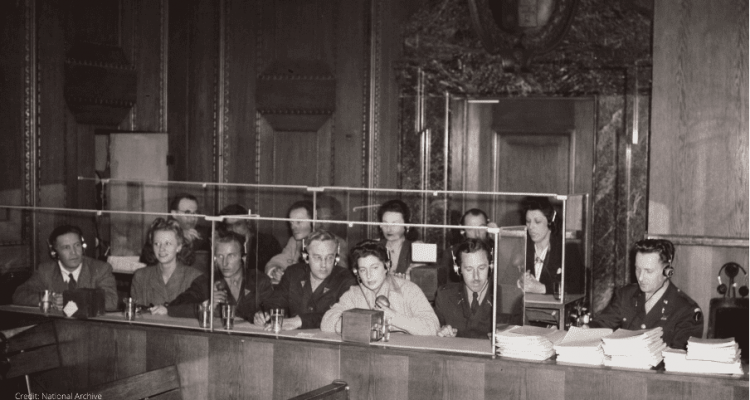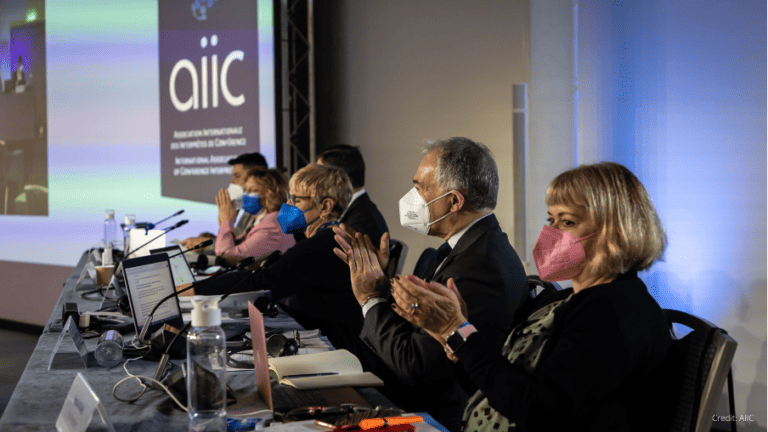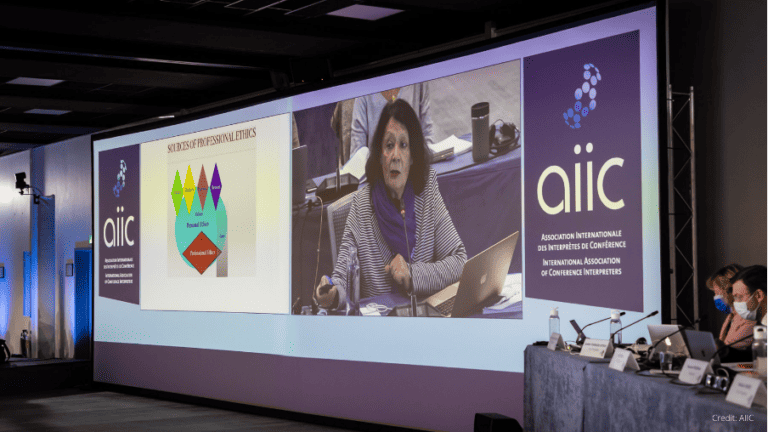AIIC, the International Association of Conference Interpreters, recently chose Assembly Voting to meet the challenges of secure voting at its first hybrid assembly.
The International Association of Conference Interpreters
In the aftermath of World War II, nations started to work together as never before, despite language differences. In 1945, it would have been impractical for the Nuremberg Trials to be conducted with traditional consecutive interpretation (where the speaker pauses regularly for the interpreter to repeat what has been said) in four languages, so a recent technological development by IBM was used that would allow simultaneous interpretation to happen while the speaker was talking.

Interpreters at Nuremberg
So successful was the experiment that the international organisations that were founded in the post-war years, like the United Nations and the World Bank, soon dispensed with consecutive interpretation and embraced this new form of simultaneous interpreting for their meetings.
In 1953, these first conference interpreters set up AIIC, the International Association of Conference Interpreters, to support them in this nascent profession. Their goal was to build a worldwide association of professional conference interpreters who would agree on professional standards, a code of ethics and work with the institutions to define working conditions. Today, AIIC has over 3000 members in 100 countries, working in 74 different languages and every 3 years they meet together at an international assembly.
Planning a hybrid event
We spoke to the Executive Secretary of AIIC, Claude-Alain Battiaz, at the Association’s Headquarters in Geneva, to find out more about how this year’s Assembly was unlike previous ones.
“When COVID surfaced we had to move fast to figure out what to do. Previously our assemblies had always been in-person, but holding a conventional physical assembly was no longer an option as we realized that many of our members would be unable to travel to the Assembly venue.

AIIC’s Executive Committee at the 2022 Assembly
A flexible solution
AIIC started evaluating different application providers, shortlisting and testing 6 of them. They finally decided on Assembly Voting because of the flexible configurations it offers, making it a good solution for an association with many procedures and rules to consider. Another important pain point for AIIC was a high level of security, which Assembly Voting was able to provide at a reasonable price.
In 2021, Assembly Voting was used by AIIC members around the world to vote remotely as part of two small events, but the Assembly at the beginning of this year was on a much larger scale.
In January, nearly 600 voting participants used Assembly Voting at the event in Geneva and around the world. Voting on more than 100 ballots was successfully carried out on a number of different amendments, resolutions, and candidate elections.
“Assembly Voting helped us set up the system and were available to assist us during the Assembly, but we actually handled most of the voting on site ourselves. This approach worked really well, the execution of the event went smoothly and feedback from participants was positive” said Claude-Alain Battiaz.

Professional Ethics was one of many issues AIIC members voted on using Assembly Voting


